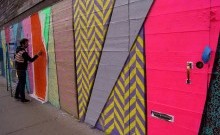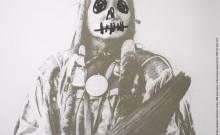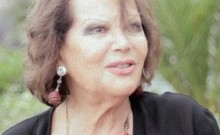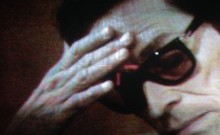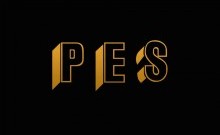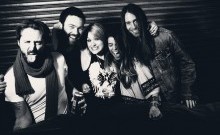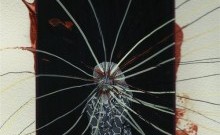Bricolagistas
One of the few things I can imagine that would be harder than getting your movie made, would be getting your virtually silent, low budget, black & white movie made. Kind of like trying to climb mount Everest without a ton of supplies while smoking cigarettes, and with a bunch of weights strapped to your back during an avalanche. Or something like that anyway. Such was the case for filmmakers Maximón Monihan and Sheena Matheiken when they set out to make La Voz De Los Silenciados, the largely silent story of Olga, a young deaf woman from Central America who receives what seems to be a scholarship to a faith-based school for the deaf in Brooklyn, NY, but winds up being something else entirely. I’ll save the full synopsis for the cats at Wikipedia but the point here is they did it, & with not much more than their belief in themselves & their story, a little luck & a camera, and a DIY mentality --- made it so virtually nothing was there to stand in their way.
The “by any means necessary” attitude and mentality of the film seems to be reflected across Sheena and Monihan’s entire body of work, and even in the name of their production company, Bricolagista, which comes from the term Bricolage, defined as a means to make something out of whatever you can get your hands on, making a Bricolagista one who employs the tactic of Bricolage. One thing seems certain, whatever they get into in the future, much of it seems destined (or at least DIY’d) to be together.
Jonathan Mayor: What's new? What are you currently working on?
Monihan: We're working on a few things. First up, post-production on our Coast to Coast road trip movie, currently titled "Sea To Shining Sea", but we might change that. It's a story about us driving our certifiably insane friend from Amsterdam on a trip he’s been dreaming of his whole life --- from California to New York --- in a shitty Subaru, one my mother said she'd give me if I came and picked it up in California, where she lives. So she's in it too. It's our first feature documentary, but we’re shaping it more like fiction. So it looks and plays like a narrative film even though it’s a documentary.
Besides that, we're in pre-production (raising money) for a film that takes place in Japan, called "Tōjinbō". It's about loneliness, pissed off youth, and listening to people when they need to be heard. I know that sounds highly esoteric but I don't want to give too much away. We’re both really excited about it. And to answer your question about collaboration, almost everything I'm working on, I work on with Sheena. She's focused and 'professional' in a way that I'm definitely not.
Sheena: I don’t know about ‘professional’. We’re making it up as we go, which is all you can do when you don’t have a manual. I have a design background and an editor’s mind, so I think I just try to bring structure and clarity to our beautiful chaos. Aside from our two new film projects (that Monihan mentioned), I’m also involved in a very exciting project in the Brooklyn Navy Yard called New Lab. We’re converting a historic 84,000 sq. ft. shipbuilding facility - this epic steel-structure - into a center for design and high-tech manufacturing; and bringing together some of the world’s best people in things like robotics, nanotechnology, health sciences, industrial design, etc. Creating a collaborative community to move modern manufacturing forward and grow responsible businesses. I head the digital arm of New Lab. We’re in the process of building our digital service platform, the virtual extension of the physical space and the new building opens in June 2016. So basically I don’t sleep much.
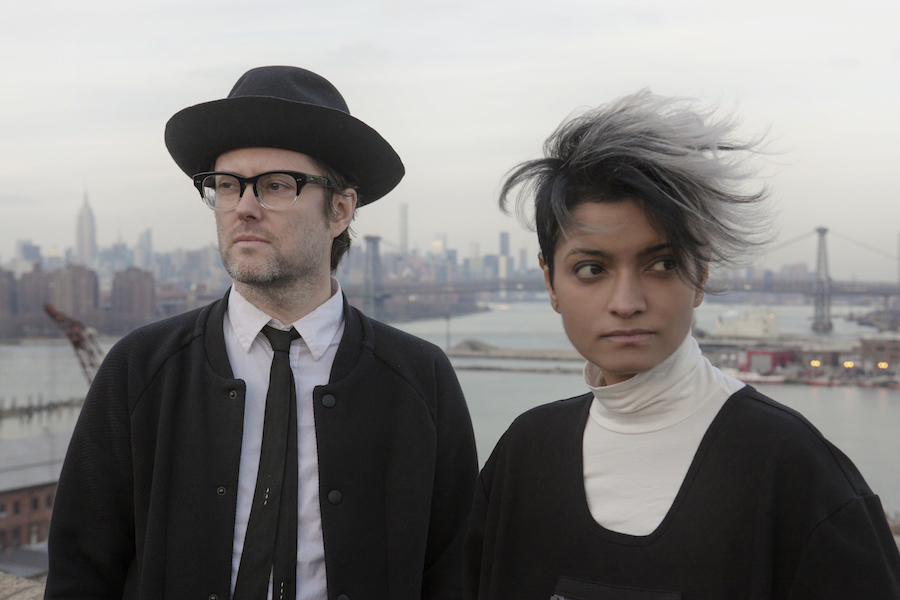
JM: How'd you guys first get started in film, and how did you make the transition into feature film? Also, how did you guys first meet and decide to work together?
Monihan: I come from a skateboarding background and used to make skate films. I was skating and working with a company called H-Street and we made a really poorly produced skate video that also happened to have some amazing skating in it. Most of the people in the video were nobodies, but because the skating was so good, the video quality didn't matter all that much. The video stole some of the thunder from more polished skate companies and kind of changed the landscape of skate movies. So that was sort of my film school. I saw that if the content was good, it didn't matter if it was polished at all. It was the same thing I knew instinctively from my music tastes or whatever and now I knew it could be applied to film too. I finally stopped competing and focused only on creative things, then started making more skate videos for various people, and did other odd jobs, the whole time trying to figure out how I could get someone to give me a huge bag of money so I could actually make a proper film. It took me a while, but eventually I realized it would never happen. So I plotted and schemed ideas on how to make a movie for no money at all. These were the days before everyone and their grandma had an HD camera, so I constructed a story based on a fact that literally enraged me, which meant I'd have the drive to see it through.
Sheena: I moved around a lot as a child (I was born in Ireland, grew up in India and moved to New York in my early 20s). In many ways, I never really felt like I belonged anywhere, so I’m not one to pledge allegiance to borders. And film has always been a defining medium for me to relate to the rest of the world. I went to art school and then moved into design & technology, but film has always been my real passion. My grad school thesis was a short film shot in Bosnia and Herzegovina about post-war ruins. I look at it now and I see a terribly pretentious student film, but the experience of making that film had a profound impact on me. After that, I tried making several experimental shorts but got disillusioned by how hard it is to make a truly good film (I realized it didn’t have much to do with technical ability, it was more about knowing what kind of story you wanted to tell and getting other people to see what you see). So I kind of stuck to commercial work because I knew this wasn’t something I could do on my own. It wasn’t until I met Monihan that that old spark was rekindled. By now I felt like I was actually more mature and had a better grasp of the the kind of films I wanted to make and why. And meeting Monihan changed everything for me. I'd had my share of past relationships and I was pretty content being on my own when we met. But suddenly here was someone who really just shone above the rest and he tuned into me in this effortless way. Our talents complimented each other and we both felt like we were learning a lot from each other. Working together came naturally and we have been creative partners ever since we made our first little film together. Maybe we should just tell them how we met already.
Monihan: We met online. [Laughs]. It’s true though. I was pretty much stalking her on the internet. Sheena was doing this crazy art/fundraiser/awareness project where she wore the same dress for a year. Right at the same time, there was a magazine in Istanbul, Bant Mag, doing an NYC edition where they were having New York artists interview other NYC artists. Each person being featured would then choose another person. So my friend Livingroom Johnston interviewed me, so I had to find someone to interview. A friend had sent me a link to Sheena’s project and I thought it was incredible (as an idea and in the execution), so I asked the people at Bant if I could interview her. They said yes, so I wrote Sheena an email.
Sheena: I was working full time, on top of doing this very time-consuming project, and somehow the whole thing went viral and I was suddenly getting a lot of interview requests. So I told Monihan I’d give him 30 minutes. The 30 minute interview lasted 3 hours.
Monihan: And then we went to see 'In The Loop’ and we were laughing at all the same stuff, so it was meant to be.
Sheena: The rest is history. Or history in the making.
Watch a snapshot of the full 365 days of The Uniform Project here.
JM: Tell me a little bit about your collaboration on La Voz De Los Silenciados.
Monihan: Everyone in New York has seen people handing the cards with trinkets out on the train. But most people don't know why they stopped seeing all these people all of a sudden. Or why they were actually doing it. So when you tell them that everyone was actually deaf and that they were being forced to do it, that it was modern day slavery that they were witnessing, people can't believe it. Because they experienced it. Saw it every day. It was only in the papers for like two days when they caught the group running the ring. So if you weren't up on your current events, it could have just flown past you with the quick news cycle. But it's something that I couldn't ignore. Even when I didn't fully know what was going on, I still had a hunch that it was some dehumanizing shit. And I used to get very upset with people when they'd write it off like the people on the train were scam artists. I mean, look, there are way easier and less degrading ways to make a few bucks in NYC. It was desperation. So I knew that there was something going on. I also knew we could make the film for no money, shoot illegally on the trains, and just use the city as the backdrop, so that all prompted us to make the film. But we still had no money to make a feature length movie and I didn't even have a job at the time but we had access to a camera, and we also had a lot of friends who were out of work, so everyone committed to working on L.V.D.L.S. since we weren't doing anything else anyway. And yeah, free camera... this car company had a marketing idea of having ten 10-minute films by 10 up and coming filmmakers and they'd give you a camera and flights to wherever you wanted to shoot. Somehow they picked us. We asked if we would keep the rights to the film, which they agreed to. They only wanted to have this little screening thing for their marketing event, but we would maintain all rights. So we told them we wanted to make a full length movie, not just a short. And I'd let them show the first 10 minutes. They gave us the camera and free flights to central America, where the film begins. It took forever to get the shooting finished, because nobody was ever available at the same time and you can't complain when everyone is doing something for free. But after a couple years of non-stop headaches, we had something that looked like a movie. And then, somehow, a festival decided to let us in and the pebble was rolling.
JM: How much of a struggle (labor of love) is it to get a film like that made?
Monihan: It's nearly impossible. No money means no insurance, no permits, and that everything needs to be begged, borrowed, or stolen. A highly unprofessional way to make something. But the only way given our constraints. It's the type of thing that makes you a bit jaded, because now, no matter how great a movie is when I watch it, the mere fact that they have a budget, I'm like psshhh... And I know that's a bullshit opinion or attitude, because it's super hard to make anything, even under the best circumstances. But still, I have this stupid chip on my shoulder now. And I know it's not healthy. But on the other hand, making the first thing for nothing, it's priceless, because now I know that it can be done for nothing, if it has to be.
Sheena: Well, this is where we disagree [laughs]. The way we made this film, was a one time shot. It’s not at all a sustainable practice. We have used up all of our favors. All! But even though we can never do this again, I’m glad we did it too. It’s a great way to learn. We could write a book about ‘lean’ filmmaking. (It would be a dark comedy). We took the chance and made this highly non-commercial movie, and the film has found a very unusual path of its own, which has now opened very unexpected doors for us to continue making the kind of films that we really want to make.
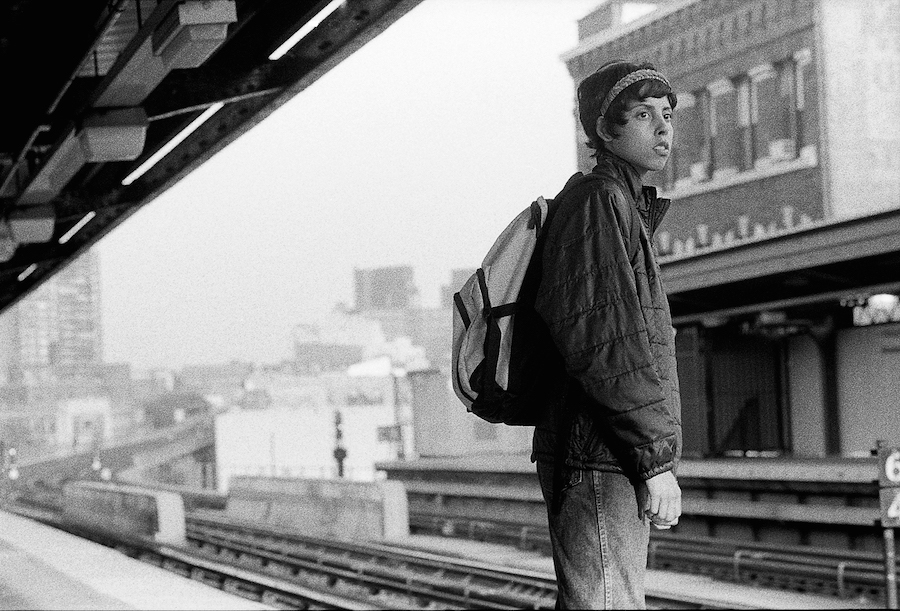
JM: Monihan, I know you studied philosophy. How did that tie into what you were seeking as a Director, in terms of audience experience for the film? And for the use of sound and lack of sound in the film?
Monihan: I'm sure it had some sort of influence on the way we told the story. But it wasn't too calculated from an academic standpoint. Maybe in that I wanted to use the medium in a different way, to hopefully force a different experience on the audience. Be inside the shoes, or headspace, as the case may be, of someone else's experience for a little while. An empathy inducing tactic with a sensory twist.
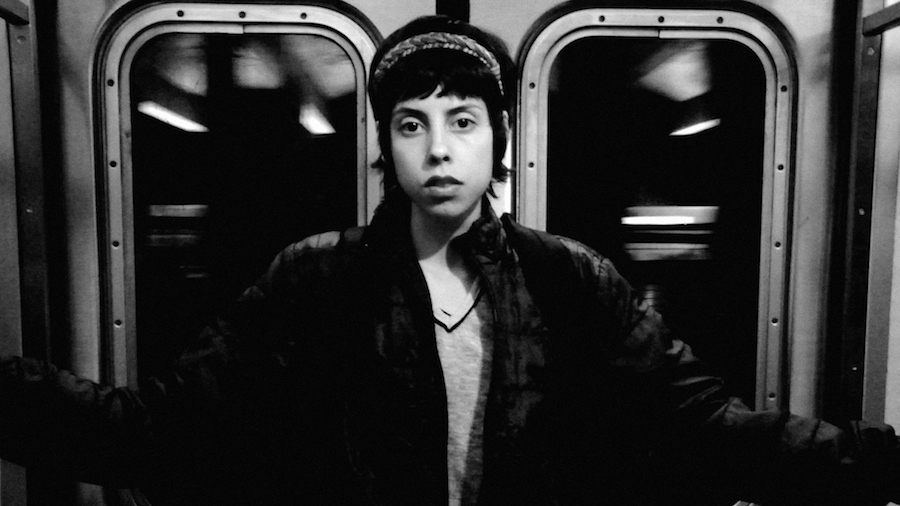
JM: At the risk of asking a stupid question, was there ever consideration of Olga pocketing the cash over a hundred dollars and making a run for it when she stashed enough? What would she become in another time or place? (Spoiler --- In the film, Olga and a group of other deaf characters from Central America receive what they believe is a scholarship to a School for the Deaf in Brooklyn, which actually winds up being a modern kind of slavery, where they’re forced to make money on the subway (or however else they can) and give it to their captors. The captors demand that they turn in at least $100 per day, and although Olga begins to make more, a surplus that she could potentially keep without punishment, she turns in the entire amount.)
Monihan: if you watch the film closely, you'll see that the people running the crime ring make it clear to the 'students' that if they try to run away, or fail to come back every night, they'll call back down to where they're from and have their families killed. Nobody wanted to risk that, so they didn't take any chances. Much like most of us don't usually risk the further violence that would come from fighting back when we are faced with oppressive forces.
Sheena: I still think she is extremely heroic. And I think it is more realistic than typical portrayals of heroism on screen.
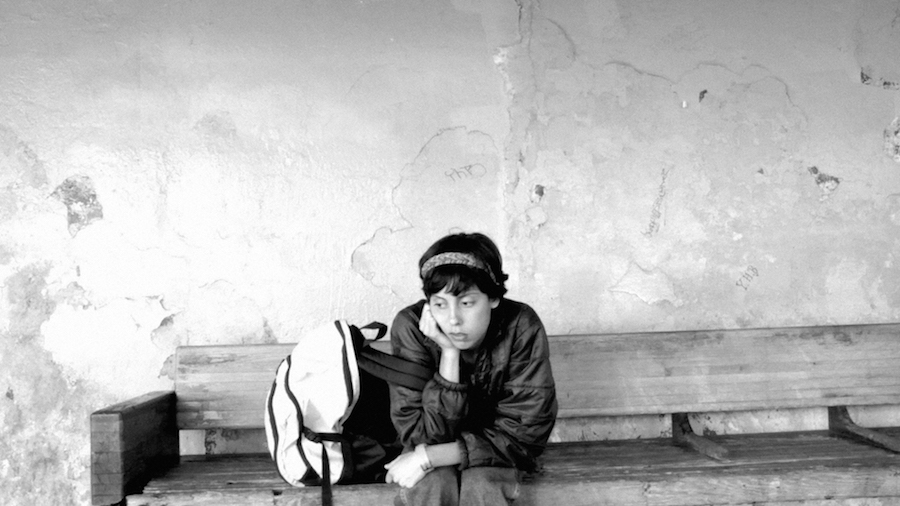
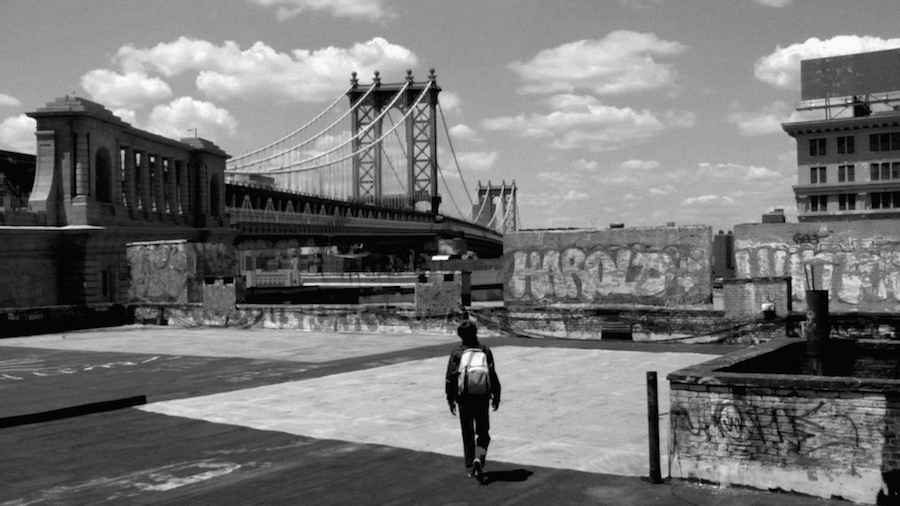
JM: Any advice about the art of collaborating / film as collaboration?
Monihan: I'll let Sheena take the lead on this. But before doing so, I'll say she makes it very easy. You always hear other couples say things like, "Oh we'd kill each other if we had to be around each other all day." And I'm thinking, 'Then why the hell did you marry each other?' I always tell my single friends, wait. Wait until you meet the right person. Someone you really admire. Who you know will inspire you to be the best person you can be. And if you really do respect them, then it's super easy to work together, because you actually like being around each other. It also helps that she's extremely talented and works harder than anyone I've ever met.
Sheena: Everything he said! It really boils down to mutual respect and trusting the other’s core. Then you can fight over details to death and still go to bed together peacefully.
JM: What/who are you most influenced by?
Monihan: Nothing motivates me more than someone or something trying to keep me from being able to do something I feel I should have the freedom to do. Especially if it's something that someone else is being allowed to do. I'll do anything to break down or sneak around that barrier.
Sheena: I am motivated by criticism. It gives me clarity.
JM: What else informs your process, be it other forms of art, the place that you live, or the things you see every day?
Monihan: I guess it was the culture of my formative years. What the media coined as 'punk' and then almost like the next day what Afrika Bambattaa called 'hip hop'. Those were the major cultural forces of my youth. Where I learned that the stuff from the underground matters as much as, and usually more so, than anything happening in the mainstream. These are the same things that lead me into skateboarding. Now of course, hip hop and punk rock and skateboarding have all been commodified and turned into the exact opposite of what they all once stood for. But there was a time where those things really meant something important.
Sheena: The secret mainstream, as Herzog calls it. For me, no place has impacted me more than New York City. It’s a city than has given me the most pain and the most joy. But there are other places of my childhood, especially, growing up in India that have had a profound impact on my being. India gave me passion, conflict and discontent and New York taught me how to listen to that discontent and make something good of it.


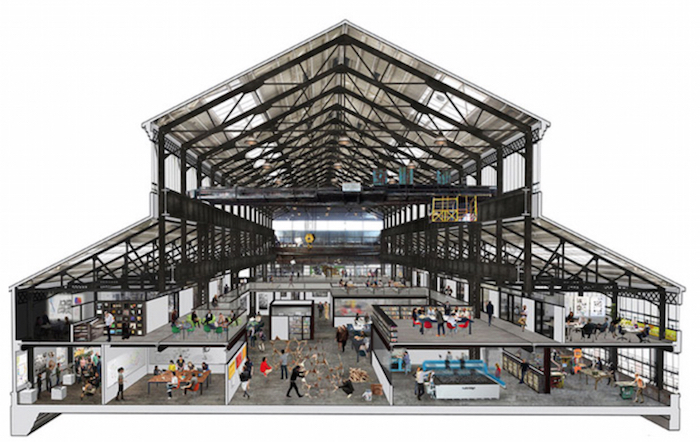
Sheena's current project, NEW LAB.
Set in a historic 84,000 sq. ft building in the Brooklyn Navy Yard,
New Labwill become home to designers, engineers and entrepreneurs
innovating and growing businesses under one roof.
JM: What are your favorite films?
Sheena: Monihan and I share similar sensibilities (with the exception of horror - that is one genre I can’t handle at all). I’ve always been a huge fan of long movies. Bergman’s Scenes from a Marriage, The Saragossa Manuscript, Celine & Julie Go Boating... I’m also a loyal fan of Chaplin and Cassavetes, and currently binging on Ulrich Seidl films. And of course, Herzog. He walks the perfect tightrope between fact, fiction and fantasy.
Monihan: I love the films of Kaurismaki. And Ozu and De Sica. Recent films, Farhadi's stuff is the most consistently solid body of work. I love a lot of recent doc stuff too. Noujaim hasn't made a bad movie. Darius Clark Monroe's "Evolution of a Criminal" is a nearly perfect film. As far as American mainstream movies, "The Texas Chainsaw Massacre" and "The Bad News Bears" (the real ones). Both those movies are great.
JM: True. What do you make movies for?
Monihan: Sadly, movies are one the last places left in popular culture where you can have an in depth, multi-hour, communal examination of ideas. Other arenas of thought are either done in private or worse, they have been dumbed down and reduced to soundbite culture. The whole thing about making things shorter and punchier for fear that you're going to lose everyone's attention. So when it comes to complex issues or ideas, it's impossible to really get into it in that short of a form. Whereas movies are substantial enough to still have the chance of dealing with some serious shit. And it’s my hope that our movies and other movies follow through on this.
Sheena: This is a cliche, but I really believe in the magic of movies. I get a lot of exposure to emerging technologies on a daily basis and I see a lot of stuff that could potentially be paradigm shifting, but I always revert back to a simple film to really help me transcend and feel connected to our collective unconscious, not unlike how meditation or hallucinogens do. I believe film is one of the last standing mediums that can still dilute borders, or notions of culture, gender, race, class, etc. to create a collective, transcendent experience.
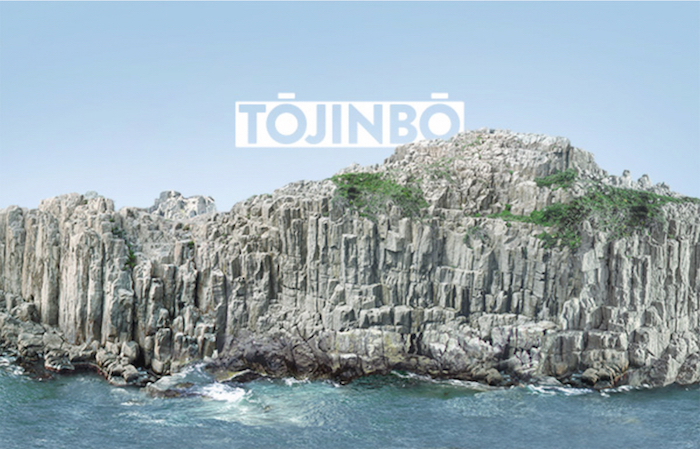
Sheena & Monihan's latest feature film project, "Tōjinbō" At Tōjinbō, Japan’s most majestic seaside cliffs,an old man strikes up conversations with people
who wander the precipice alone.This sets the stage for a cinematic fableexploring what makes life worth living...or ending.
JM: What would you be doing if you weren’t doing this?
Monihan: Trying to figure out how to do it. Which is what I'm still sort of doing anyway.
Sheena: Ditto.
JM: Where do you see your work going?
Monihan: We just want to keep making more movies. We have about 8 other movies already mapped out. Some, Sheena will direct and I'll produce, and some I'll direct and she'll produce. Maybe we'll even direct together, and hopefully we can get to a place where we can help our friends get their movies made too.
Sheena: I really relate to what Hamid Dabashi calls post-national cinema. There is a whole wave of directors who are making films outside of their country and language. And I’m not talking about non-english speaking directors making hollywood blockbusters. I’m talking about smaller independent films made by international directors in a language not their own that are still able to transcend borders and create an intimacy with a universal audience. I would love to see a post-border world, one that recognizes the more universal and fundamental issues of our existence. But in reality I am not that optimistic. In reality it seems we are heading in the opposite direction.
JM: Last question - What's something you want people to know about you that most people don't know?
Monihan: That when Thrasher Magazine voted me the most hated skateboarder of all time, I didn't see it as a slight or a diss at all. I was actually honored, though this probably isn't much of a surprise to people who know me.
Sheena: The less people know about me the better.
Portrait of Sheena and Monihan by Kristen Winter
Video Portraiture by 1985
Camera/Image by Daniele Sarti
Instagram: @danielesarti
Sound Design / Mix by Jean Prince
Instagram + Twitter: @matheiken @monihan




